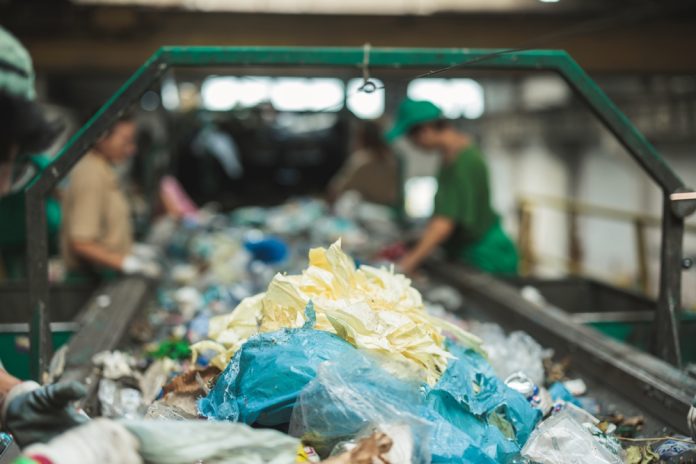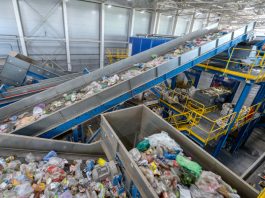When navigating the complexities of environmental regulations, the European Union’s Packaging Waste Directive emerges as a crucial piece in the sustainability puzzle.
With its focus on holding producers accountable for their packaging waste, implementing recycling targets, and fostering a circular economy mindset, this directive impacts businesses across the EU.
Innovation News Network explores how these guidelines shape the future of packaging practices and the challenges they pose.
What is the EU Packaging Waste Directive?
The EU Packaging Waste Directive sets out guidelines for the management and reduction of packaging waste in European Union Member States. It aims to promote a circular economy by setting targets for the recovery and recycling of packaging materials.
Producers are responsible for the waste generated by their products, encouraging them to design eco-friendly packaging and take responsibility for its disposal. The directive also establishes extended producer responsibility schemes, ensuring that producers bear the cost of managing their packaging waste.
Furthermore, the EU Packaging Waste Directive encourages member states to implement waste prevention measures and improve waste management practices.
It requires the separate collection of packaging waste to facilitate recycling and sets minimum recycling targets to promote a more sustainable approach to packaging.
By implementing these measures, the directive seeks to reduce the environmental impact of packaging waste and move towards a more resource-efficient economy.
Key requirements for producers and businesses
Producers and businesses must comply with specific obligations outlined in the EU Packaging Waste Directive to ensure responsible packaging waste management.
One key requirement is for producers to minimise the environmental impact of packaging by reducing its weight and volume while ensuring it can be recycled.
Additionally, they are obligated to meet recycling targets set by the directive, which promotes a circular economy approach. Businesses must also label packaging to inform consumers about proper disposal methods and recycling instructions.
It is crucial for producers and businesses to keep detailed records of the packaging materials they use, the quantities placed on the market, and the waste management systems they contribute to.
Non-compliance with these requirements can result in penalties and fines.
Impact on recycling and waste management systems in Europe
Businesses across Europe are experiencing a notable transformation in their recycling and waste management systems due to the implementation of the EU Packaging Waste Directive.
This directive has led to an increased focus on sustainable practices, pushing companies to rethink their packaging materials and waste disposal methods. As a result, recycling rates have been rising, with more emphasis on reducing, reusing, and recycling packaging materials to minimise environmental impact.

The directive has also prompted the development of more efficient waste management infrastructures. Countries within the EU have been investing in advanced recycling technologies and expanding their recycling facilities to accommodate the growing volume of packaging waste.
These practices have led to a shift towards circular economy principles, encouraging the reuse of materials and the reduction of waste generation.
Challenges for SMEs under the directive
Navigating the EU Packaging Waste Directive can present significant challenges for small and medium-sized enterprises (SMEs). Compliance with the strict regulations and reporting requirements can be daunting for SMEs with limited resources and expertise in waste management.
The financial burden of implementing necessary changes to meet the directive’s standards is often a major obstacle for smaller businesses. Ensuring proper sorting, recycling, and disposal of packaging materials can also be complex and time-consuming for SMEs, especially when compared to larger corporations with dedicated sustainability departments.
Furthermore, SMEs may struggle to keep up with the frequent updates and amendments to the directive, leading to potential non-compliance issues. Finding cost-effective and sustainable packaging solutions that meet the directive’s guidelines while maintaining product quality and safety can be a balancing act for many SMEs.
Engaging with suppliers and partners to ensure compliance along the entire supply chain adds another layer of complexity for these businesses.
Despite these challenges, SMEs play a crucial role in achieving the EU’s packaging waste reduction targets and promoting a more sustainable future.
The role of consumers in complying with EU packaging waste laws
Consumers play a vital role in ensuring compliance with EU packaging waste laws by making informed choices and actively participating in recycling efforts.
By being mindful of the packaging materials they choose, consumers can contribute significantly to reducing waste and promoting a more sustainable environment. Opting for products with minimal or recyclable packaging materials can help decrease the overall amount of waste generated.
Separating packaging waste for recycling and utilising designated recycling bins also aids in meeting EU directives.
Additionally, consumers can support initiatives that promote eco-friendly packaging alternatives and encourage businesses to adopt more sustainable practices. By voicing preferences for environmentally responsible packaging options, consumers can influence producers to prioritise sustainable packaging solutions.
Participating in community recycling programmes and educating others on the importance of proper waste disposal further amplifies consumer impact in compliance with EU packaging waste laws.
Ultimately, consumer actions collectively play a crucial role in achieving the goals set forth by the EU Packaging Waste Directive.
Towards a more environmentally friendly future
In conclusion, understanding the EU Packaging Waste Directive is essential for producers and businesses to meet recycling targets and reduce environmental impact.
Compliance with the directive can lead to improved waste management systems and sustainable practices.
While SMEs may face challenges in meeting requirements, consumers also play a crucial role in supporting the circular economy by properly disposing of packaging waste.
Together, we can work towards a more environmentally friendly future.










